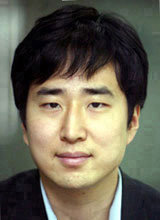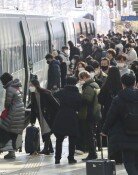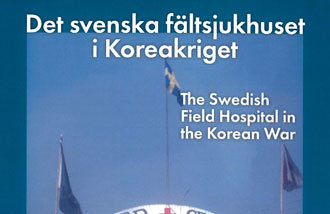Anti-mask movement fuels second wave in Europe
Anti-mask movement fuels second wave in Europe
Posted October. 23, 2020 07:51,
Updated October. 23, 2020 07:51

This journalist visited a hospital in the 15th district of Paris with my family on Saturday afternoon. Twindemic, a double whammy of the coronavirus and a seasonal flu in Europe, was a deep concern for us.
The moment I stepped in, the first thing I saw was a doctor without a mask on. He was injecting shots in a small examination room, and his saliva splashed everywhere when giving instructions to patients. That was unacceptable amid the COVID-19 era, so I told him to wear a mask for the patients, adding that it was mandatory. But the doctor seemed irritated by my request.
“Do you think you would be safe with a mask? It doesn’t work. The government is brainwashing us,” the doctor said. As I stood there dumbfounded, he added, “The coronavirus is not so dangerous anymore. You are being played by the lies of politicians.” It felt almost surreal coming from a real doctor, not from some anonymous commentator online. Masks should be considered prerequisite for prevention of COVID-19 when there is no vaccine to stave it off. In fact, the French government has made it mandatory for citizens to wear a mask in public places starting July.
Yet an “anti-mask movement” is afoot in France. Last month, the Fondation Jean-Jaurès under the French Socialist Party conducted a survey of 1,000 people who oppose wearing a mask. Of those, 90% said that COVID-19 isn’t dangerous and the government is trying to strike fear into its citizens to line the pockets of pharmaceutical giants and to make it easier to govern the nation. Some 94% said they will shun inoculation even vaccines are out.
Surprisingly, the mainstay of the anti-mask supporters isn’t teenagers or 20 somethings, the demographic brackets finding lockdown most annoying. With the average age at 50, the anti-maskers are highly educated folks, with 36% of them working in a managerial position or as professionals. A prime example is Eve Engerer, a doctor who ignited the anti-mask campaign on Facebook.
After visiting the hospital, this journalist roamed about the Champs-Élysées and the downtown nearby after 9 p.m. thanks to a reporter pass. Starting on Saturday, Paris slapped a night curfew (9 p.m. – 6 a.m.). But many were chatting on benches on the streets even after the curfew hours. Some claim that wearing a mask is illegal, citing a law prohibiting the covering of a face in public places enacted in 2010. A legal verification found that a mask was not subjected to the law as it doesn’t cover the entire face.
The number of new infection cases in France on Saturday was a whopping 32,427, the highest daily increase since the outbreak. More than 2,000 patients were hospitalized at ICUs. The French government will extend the national health emergency status to February next year, while expanding the scope of curfew. Things are not so different in other European countries that saw the surge of anti-mask movement such as Germany, the UK, or Spain. Those who refused to wear a mask are finding themselves facing yet another bout of total lockdown in March next year that will ban travel and gatherings.
“A stitch in time saves nine” is a proverb that I often cite to the French people around me. The enormity of the second wave of COVID-19 is such that even nine stitches might not work now. The anti-maskers in Europe were a reminder of how dangerous it can when people believe what they want to believe instead of embracing objective facts.
Youn-Jong Kim zozo@donga.com







